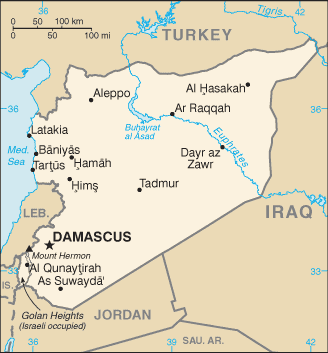In mid-March, a group of rebel factions from the suburbs of the Syrian capital of Damascus attacked the city’s Jobar District, using tunnels to sneak into the area. This led to a flurry of anti-tunnel measures to prevent future infiltration from the suburbs.
 Those weren’t just tunnels for rebel attacks, however, they were the economic lifeline of Eastern Ghouta, as the area, surrounded by government forces, used tunnels to carry out all trade with the capital. The tunnels are closed, and so is the trade.
Those weren’t just tunnels for rebel attacks, however, they were the economic lifeline of Eastern Ghouta, as the area, surrounded by government forces, used tunnels to carry out all trade with the capital. The tunnels are closed, and so is the trade.
Locals say that food is getting more scarce, and the price of fuel has risen precipitously in recent weeks, with cooking gas now said to cost almost 20 times as much in the rebel enclave as it does in the Syrian government’s territory. The rebels are presenting the anti-tunnel moves as attempts to “strangle” their economy.
Pro-rebel groups internationally are backing this narrative, though many took the exact opposite position in the Gaza Strip, endorsing Israel and Egypt in closing the “terror tunnels” that were likewise used not just in attacks, but in smuggling goods into a sieged area.


